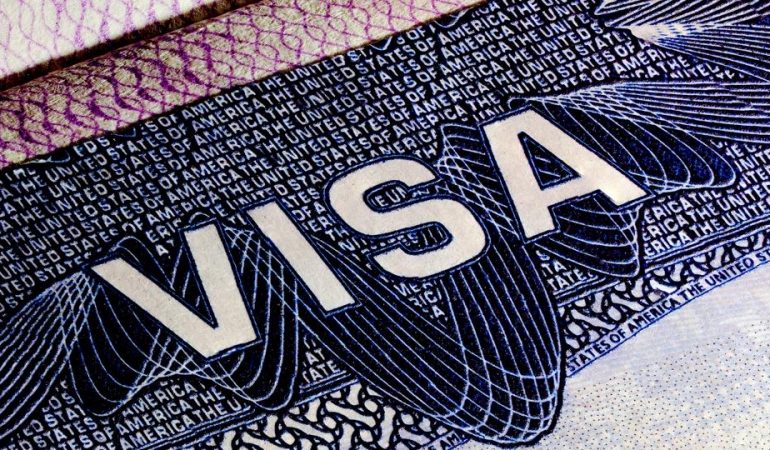The Department of Homeland Security issued new rules Tuesday that will make it harder for skilled foreign workers to acquire H-1B visas, days after a federal judge temporarily blocked an executive order issued by President Trump in June which suspended the issuance of foreign worker visas amidst the pandemic. DHS’s new regulations target H-1B temporary work visas, which are granted to skilled foreign workers primarily in the tech industry, allowing them to stay in the country for multiple years.
The rules, which go into effect 60 days after they’re published in the Federal Register, raise requirements for companies that hire foreign workers under the H-1B program.
The new rules narrow the definition of “specialty occupations” under the H-1B, require companies to offer these roles to U.S. workers first, and enforce stricter compliance through worksite inspections.
The Department of Labor also issued a new rule on Tuesday that will require employers to increase what they pay H-1B recipients, in an effort to discourage firms from undercutting American workers with cheaper foreign labor.
CRUCIAL QUOTE
Dan Stein, the president of the Federation for American Immigration Reform praised the move stating, “While the current unemployment crisis triggered these regulatory reforms to the H-1B program, we expect that these changes will be long-lasting. Once these protections for American workers are firmly in place, it will be very difficult for any future administration to reinstate the ability of employers to deny jobs and undermine the wages of U.S. workers”.
CHIEF CRITICS
A study published earlier this week contends that restrictions on H-1B visas may lead to the unintended consequence of pushing jobs outside the United States and lead to less innovation in America. Britta Glennon, an assistant professor at the Wharton School of Business who authored the study, found that such restrictions benefit countries like China, India and Canada, with companies moving jobs there stating, “foreign affiliate employment increased both in countries like India and China with large quantities of high-skilled human capital and in countries like Canada with more relaxed high-skilled immigration policies and closer geographic proximity.” Following Trump’s restrictions on foreign workers in June, U.S. Chamber of Commerce CEO Thomas J. Donohue said, “Putting up a ‘not welcome’ sign for engineers, executives, IT experts, doctors, nurses and other workers won’t help our country, it will hold us back. Restrictive changes to our nation’s immigration system will push investment and economic activity abroad, slow growth, and reduce job creation.”
KEY BACKGROUND
In June, Trump issued an executive order that suspended the issuance of multiple temporary worker visas, including the H-1B, through the end of 2020, claiming that it would reallocate about 500,000 jobs to out-of-work Americans. Last week, a federal judge ruled that the President had overstepped his authority in suspending the visas and temporarily blocked further implementation of the sweeping order, which also targeted H-2B visas for short-term seasonal nonfarm workers, J-1 visas for professors and exchange programs and L-1 visas for intracompany transfers. Stephen Miller, the president’s chief adviser on immigration, has for years pushed to limit or eliminate the worker visas, arguing that they harm employment prospects for Americans. The restrictions, however, have faced bipartisan pushback, with nine Republican senators, including Lindsey Graham and John Cornyn, writing to the President in May urging him to reconsider broad new restrictions on temporary work-visa programs, which the senators said would ultimately hurt U.S. businesses. Congressional Democrats were more scathing, with House Democratic Caucus Chairman Hakeem Jeffries, D-N.Y., attacking President Trump by calling him the “Xenophobe. In. Chief.”
BIG NUMBER
65%. That’s the percentage of Americans who supported a temporary halt on nearly all immigration during the pandemic, a Washington Post-University of Maryland poll published in April found.
"Forbes Georgia-ის სარედაქციო ბლოგპოსტების სერია "როგორ გამდიდრდა“ და "საქართველო რეიტინგებში".














